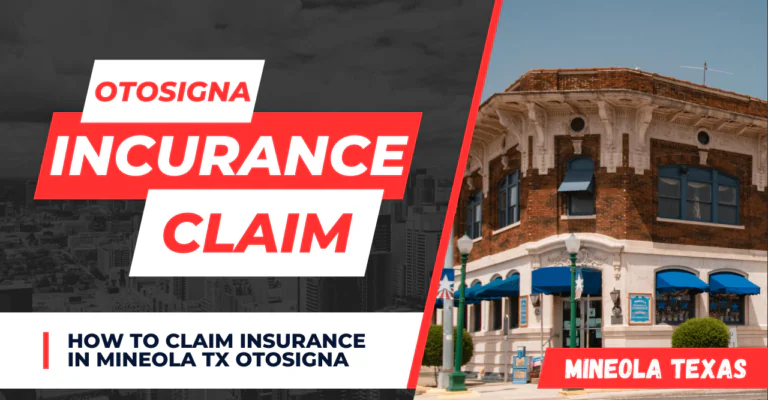Offshore Injury Law Firm : Your Guide to Maritime Injury Claims
Offshore Injury Law Firm : Your Guide to Maritime Injury Claims
Maritime work often involves demanding physical labor and exposure to harsh conditions, making offshore workers susceptible to various types of accidents and injuries. When a maritime injury occurs, seeking legal representation from an offshore injury law firm can make a substantial difference in obtaining rightful compensation and justice.
Understanding Offshore Injuries
Offshore injuries encompass a wide range of accidents that occur in navigable waters, such as oceans, seas, and lakes, during activities like oil rig operations, shipping, fishing, and more. These injuries can be caused by machinery malfunctions, negligence, inadequate training, adverse weather conditions, and other factors.
Importance of Offshore Injury Law Firms
Offshore injury law firms specialize in providing legal assistance to individuals who have sustained injuries while working on maritime vessels or facilities. These firms understand the intricacies of maritime law and are well-equipped to navigate the complexities of offshore injury claims.
Types of Offshore Accidents
Offshore accidents can include vessel collisions, equipment failures, fires, explosions, slip and falls, and more. The unique nature of these accidents necessitates a legal team that is familiar with both maritime regulations and personal injury law.
Common Injuries in Maritime Settings
Injuries sustained in maritime settings can range from minor cuts and bruises to severe injuries such as broken bones, spinal cord injuries, and even wrongful death. Proper medical treatment and legal guidance are essential to ensure victims receive appropriate compensation.
Jones Act Claims Explained
The Jones Act, also known as the Merchant Marine Act of 1920, allows eligible maritime workers to seek compensation from their employers if negligence contributed to their injuries. To file a successful Jones Act claim, the injured party must establish that their employer’s negligence played a role in the accident.
Eligibility Criteria To qualify for Jones Act protection, a worker must be classified as a “seaman” and the vessel they work on must be considered “vessels in navigation.”
Damages and Compensation Jones Act claims can provide compensation for medical expenses, lost wages, pain and suffering, and other related damages.
Role of Negligence Proving negligence is a crucial element in Jones Act claims. It involves demonstrating that the employer breached their duty of care to provide a safe working environment.
Longshore and Harbor Workers’ Compensation Act
This federal law provides benefits to maritime workers who are not considered seamen under the Jones Act but still suffer injuries in maritime-related activities.
Coverage and Benefits The Longshore Act covers medical expenses, rehabilitation costs, and compensation for lost wages.
Filing Process Injured workers must report their injuries to their employer and file a claim with the Department of Labor within the specified timeframe.
Death on the High Seas Act
In cases of fatal offshore accidents, the Death on the High Seas Act (DOHSA) allows surviving family members to seek compensation for their loss.
Wrongful Death Claims DOHSA permits spouses, children, and other dependents to file wrongful death claims against responsible parties.
Recoverable Damages Compensable damages under DOHSA include funeral expenses, loss of financial support, and emotional distress.
Maintenance and Cure Maintenance and Cure is a doctrine that ensures injured seamen receive necessary medical treatment and a daily allowance until they reach maximum medical improvement.
Definition and Purpose Maintenance covers daily living expenses, while Cure covers medical treatment costs.
Maintenance and Cure Claims Injured seamen can file claims for maintenance and cure regardless of fault, as these benefits are considered basic rights.

Steps to Take After an Offshore Injury
After an offshore injury, certain steps are essential to protect your well-being and legal rights.
Reporting the Incident Promptly report the incident to your supervisor or employer and ensure it’s documented.
Seeking Medical Attention Seek medical care immediately, even if the injuries appear minor.
Documenting the Scene If possible, gather evidence by taking photos of the accident scene, injuries, and any relevant equipment.
Importance of Legal Representation
Navigating the legal complexities of maritime law and personal injury claims requires professional expertise.
Navigating Complex Laws Maritime law involves intricate regulations that only experienced attorneys can effectively navigate.
Maximizing Compensation An offshore injury law firm can help maximize compensation by building a strong case and negotiating skillfully.
Insurance : Protecting Your Future with Peace of Mind
Factors to Consider When Choosing an Offshore Injury Law Firm
Selecting the right law firm can significantly impact the outcome of your case.
Experience and Expertise Choose a firm with a proven track record in handling offshore injury claims.
Track Record of Success Look for a firm that has successfully secured substantial settlements or verdicts for their clients.
Client Reviews Reading reviews and testimonials can provide insights into a firm’s professionalism and client satisfaction.
The Legal Process For Offshore Injury Law Firm
The legal process for an offshore injury claim involves several stages.
Initial Consultation The first step is an initial consultation with the law firm to discuss the details of your case.
Case Assessment The firm will evaluate the strength of your case, gather evidence, and determine a strategy.
Negotiations and Litigation Your attorneys will negotiate with the responsible parties for a fair settlement. If no agreement is reached, litigation may be necessary.
Settlement vs. Trial
Deciding between a settlement and a trial depends on various factors.
Pros and Cons of Settlement Settlements offer quicker resolution but may provide lower compensation than what a trial could potentially yield.
The Trial Process If the case goes to trial, both parties present their arguments, and a judge or jury decides the outcome.
Injuries sustained in offshore environments can lead to significant physical, emotional, and financial challenges. Seeking help from an experienced offshore injury law firm can make a substantial difference in the outcome of your claim. Remember, the complexities of maritime law make professional legal representation essential to securing the compensation you deserve.
FAQs
Q: How do I know if I qualify as a “seaman” under the Jones Act?
A: To qualify as a seaman, you must have a substantial connection to a vessel in navigation, which involves spending a significant portion of your time contributing to the vessel’s mission.
Q: Can I file a lawsuit under the Jones Act if I was partially at fault for the accident?
A: Yes, the Jones Act allows for comparative negligence, meaning even if you were partially at fault, you may still be eligible for compensation.
Q: What is the statute of limitations for filing an offshore injury claim?
A: The statute of limitations can vary based on the specific circumstances and the laws governing the accident location. It’s important to consult with an attorney to determine the applicable timeline.
Q: How long does it take to receive compensation for an offshore injury claim?
A: The duration can vary widely based on factors such as the complexity of the case, negotiations, and potential litigation. An attorney can provide a more accurate estimate based on your situation.
Q: Can I seek compensation if I lost a loved one in a maritime accident?
A: Yes, the Death on the High Seas Act allows surviving family members to seek compensation for their loss if the accident resulted in a wrongful death. :






